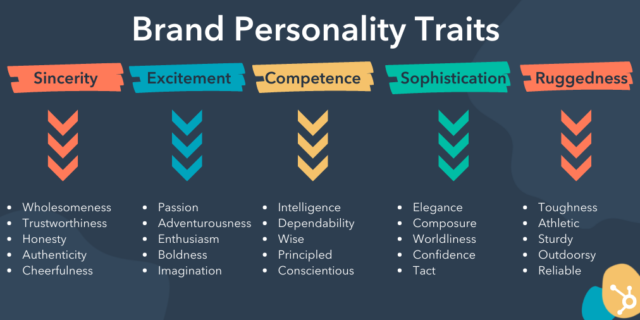There is WAY too much content in the world today, and a lot of it is just plain junk. Sorry, but it’s true. That’s why quality content continues to be a topic of conversation in the digital marketing world.
In fact, Google recently rolled out an algorithm update called the “Helpful Content Update.” Any guesses as to what that’s about?
Google E-A-T – Yes, That Again
And then you can go down the Google E-A-T rabbit hole and read a ton of articles, mostly by Lily Ray, about what it is and why it matters. This post is only tangentially about E-A-T, but it is important to make sure we’re all on the same page.
E-A-T stands for expertise, authoritativeness, and trustworthiness. Thank goodness for acronyms, huh? And your content plays a huge role in whether you are perceived as an expert, an authority, and trustworthy.
Stick with me on this.
Why Do You Trust Someone?
Let’s back up for a minute. I want you to think about two different types of people you know…
- A friend or family member who you go to for advice
- A friend or family member who offers advice whether you want it or not
I bet it wasn’t hard to picture each person, and I bet you can almost hear them speaking to you. Each has a way about them, character traits that define who they are in your mind. Each of these people has a particular tone of voice and personality that is consistent in how they converse with you.
Let’s look at it another way, think about your group of friends. Which ones are you most comfortable with? Why? What about them makes you feel at ease when you are with them?
Is it familiarity? Or a shared history and shared experiences? Or maybe it’s their character that makes them trustworthy such that you feel comfortable talking to them on a very personal level.
What the heck does all of this have to do with marketing? Quite a bit.
Is E-A-T Really Just about the T?
Let’s go back to E-A-T. Think about a person you trust and feel comfortable with…
- Expertise – maybe this trusted friend isn’t a certified expert in something, but you trust them to share information with you that you can believe and even value on some level because of their experiences.
- Authoritativeness – perhaps this friend is someone who has enough shared experiences with you that you feel they have the authority to make judgments or offer advice you can count on.
- Trustworthiness – I would argue that the primary reason you are so close with this person is that you trust them. They have rarely or never let you down.
Now, and this might be a stretch for some, but why can’t these things also be true, on some level, with a brand? I would argue emphatically that it not only can be but that it must be. If a brand is to survive this Internet and social media-driven world, it must be trustworthy.
Trust Signals and Google E-A-T
In his book Trust Signals, Scott Baradell says of Google E-A-T:
“While I respect the formula’s sentiment, I might argue that it’s a bit redundant. Expertise and authority, after all, are two of the main signals of trustworthiness.” Scott Baradell, Trust Signals, Brand Building in a Post-Truth World
There is something to that argument. Maybe Google just threw the E and A in there for the catchy acronym, E-A-T. Now, I also brought up Scott’s book because the subtitle is a very powerful statement – “Brand building in a post-truth world.”
It is getting more and more difficult to trust the information you see online, from people, from politicians (especially), from news sources, and, yes, from brands. Therefore, being authentic and trustworthy is now more important than ever.
How to Build Trust
Trust is based, in part, on familiarity. But it is also based on consistency. Being consistent is critical if you wish to gain the trust of your target audience. Both of these take time and effort.
So, how do you consistently convey your brand message while building trust? It starts with knowing who you are as a brand. What do you stand for? What do you believe in? What are your core values?
Core Values
We have core values. They are the three core principles that dictate everything we do here…
- Integrity – we do not lie, to you, to vendors, to ourselves – we all deserve the truth.
- Transparency – clients see work being done in almost real-time with access to our internal platform.
- Deliver Results – we are laser-focused on delivering results because that is ultimately why you hired us.
Everything we do here starts with those three principles, even the content we create, like this blog post.
When I first started here, I wrote a piece about core values. In it, there is an easy exercise you can do with your team. Grab some coffee and a whiteboard and define your core values if you’ve not done that yet.
Once you have your core values, you have the basis of your brand personality. But core values alone don’t completely dictate your tone of voice and the personality of your brand. You need to look at your culture, your team, your origin, your history, etc.
The Personality of Your People and Brand: Company Culture
Personality comes across in things like the amount of humor you use in your content, the seriousness of your tone, the brevity or comprehensiveness, etc.
We’re talking in part about your corporate culture. Too many brands today will force culture, and it comes across as contrived or disingenuous. Be true to who you are as a brand.
Understanding Your Corporate Culture
Corporate cultures are not defined as much as they are built. You can’t one day say, “we’re going to be funny.” You need to be funny first.
Many brands follow the lead of their founders or leadership team. And, depending on the size of the organization, that might be enough.
Other brands are much larger, and their personality develops in part from their origin, but also from who they become as a collective. Here’s the formula I would offer…
(Core Values + People) Time = Brand Personality (oooh algebra)
The culture that builds from the team, from dealing with adversity, from experiencing success, will define your brand personality.
Take some time and discuss personality with your team. The insights they share will help you to define your tone of voice and allow your content efforts to be a true representation of your brand’s personality.
Get to know yourselves.
Brand Personality Traits
Once you have your core values defined and possess a solid understanding of your brand’s personality, you can start to define your brand personality traits and how they apply to marketing efforts going forward.
Here are some brand personality trait examples from HubSpot…
Your brand’s personality traits should carry forth in your content. For example, if you are a company like REI, you might use themes like independence, ruggedness, athletic, and outdoorsy in content efforts.
But if you are a brand like Habitat for Humanity, you would go for traits like being community-oriented, generous, giving, and empowering.
It’s when you break from your authentic self that things start getting weird, incongruous, and disingenuous.
Authenticity – “Is This Us?”
I’m not telling you to “be funny” or “be cool.” I am telling you to be authentic. I’m sure the culture at REI is very focused on celebrating outdoor life, while the culture at Habitat for Humanity is likely more centered on making a difference.
Neither is right nor wrong. They are truth. They are authentic. Authenticity is a practice that relies on knowing yourself and then being true to yourself consistently. These things are true for brands as well.
As you create content for your marketing efforts, look at it through the lens of “is this us?” Brand trust comes from people believing you. They believe that you are who you say you are. Get to know who you are as a brand and be that in all the content you create.
When you look at examples of great marketing, or you feel a strong connection to a brand, chances are that trust plays a big role in that. Use your authentic brand message to build trust with your audience and achieve content marketing success!



